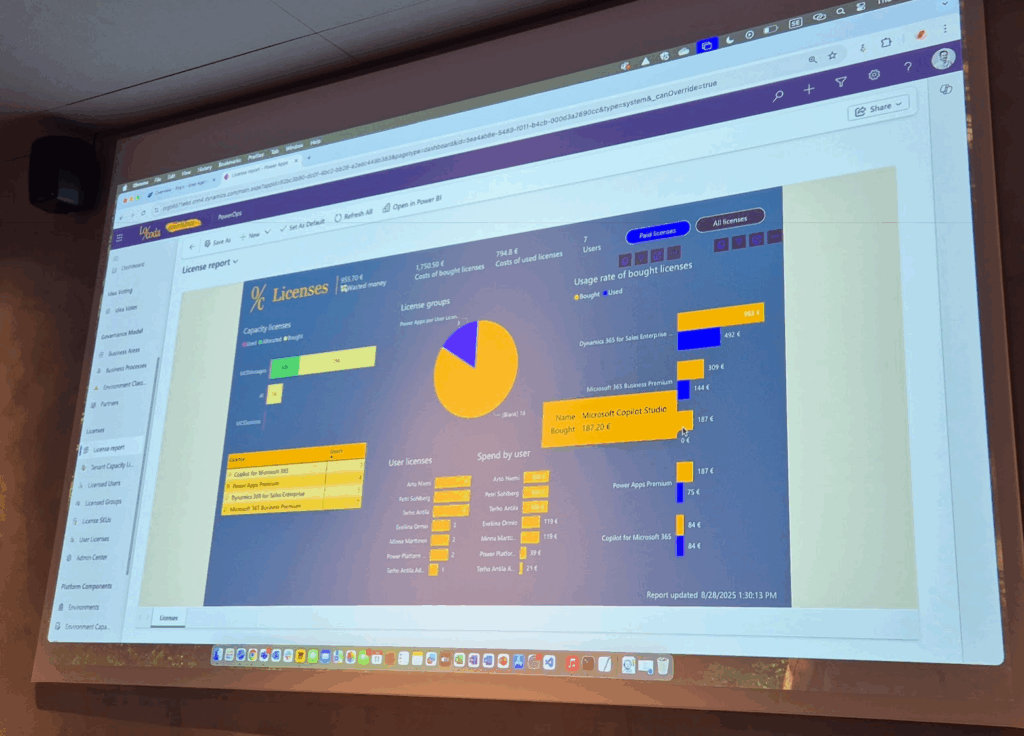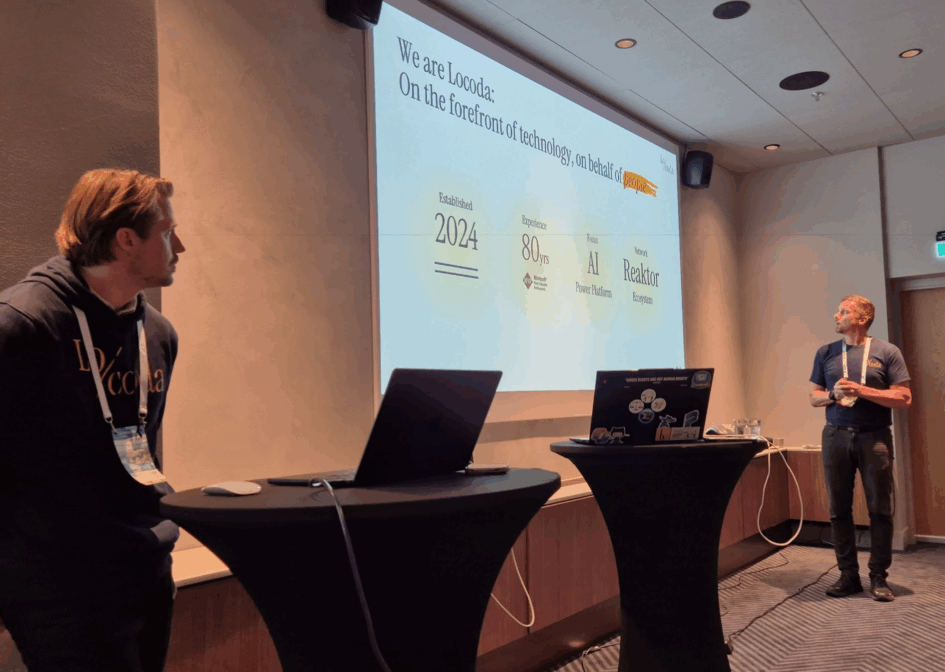In a session at CollabDays Finland 2025, Microsoft MVP Terho Antila and Arto Niemi from Locoda tackled one of the most complex challenges facing Power Platform professionals today: how to bring structure, visibility, and automation to sprawling environments powered by AI and Copilot Studio.
🧠 The Problem: Shadow IT, Licensing Confusion & AI Expectations
Terho and Arto opened the session by describing the current landscape: organizations are rapidly adopting AI and Copilot Studio, but governance hasn’t kept pace. IT leaders are overwhelmed with questions like:
- “How many environments do we have?”
- “Who’s building agents?”
- “Are we using our licenses efficiently?”
- “Can I get an AI solution today?”
The result? Shadow IT, duplicated efforts, and missed opportunities. Terho emphasized that governance isn’t about slowing down innovation—it’s about enabling it safely and sustainably.

🛠️ The Solution: A Model-Driven App for Platform Visibility
To address these challenges, Terho’s team built a model-driven Power Platform application that aggregates data from multiple sources—including the Center of Excellence Starter Kit and Azure APIs—to provide a unified view of:
- License usage and cost optimization
- Environment classification and ownership
- Agent activity and deployment status
- Security group membership and access control
The app allows admins to see, for example, that €4,000 worth of Dynamics licenses were purchased—but only €500 worth are actively used. It also tracks Copilot Studio capacity usage, even across disconnected Microsoft services.
📊 KPI Tracking with AI Evaluation
One of the most innovative features was the KPI dashboard, where organizations can define goals (e.g., “All environments must have DLP policies”) and let AI evaluate progress daily.
Terho demonstrated how users can:
- Create custom KPIs
- Set evaluation criteria
- Use AI to assess trends and generate improvement suggestions
- Visualize progress in a color-coded dashboard
This turns governance into a proactive, data-driven process, rather than a reactive audit.
💡 Idea Management with Copilot Studio Agents
Terho also showcased an Idea Agent built in Copilot Studio, which helps users submit solution ideas and guides them through a structured intake process. The agent:
- Asks clarifying questions
- Evaluates alignment with business strategy
- Flags duplication risks
- Routes ideas to the appropriate team
This transforms ideation into a scalable, AI-assisted workflow, reducing bottlenecks and improving transparency.
🧪 Testing Agents with Real Feedback Loops
Another highlight was the Training Assistant Agent, which allows end users to report issues directly from within the app. The agent:
- Captures user feedback
- Logs conversations
- Triggers automated test flows
- Evaluates whether the issue has been resolved
This creates a closed-loop testing system, where agents learn from real user interactions and improve over time—without manual intervention.
🔐 Security, Licensing & Automation
Throughout the session, Terho emphasized:
- The importance of licensing awareness across EA and CSP contracts
- Using Power Automate for secure data handling
- Leveraging Dataverse MCP services for reliable data access
- Automating DLP policy enforcement based on idea lifecycle stages
“We don’t want to block innovation—we want to guide it with structure and insight.”
Whether you’re an IT admin, solution architect, or business leader, the message was clear:
AI is here—but governance must lead the way.
